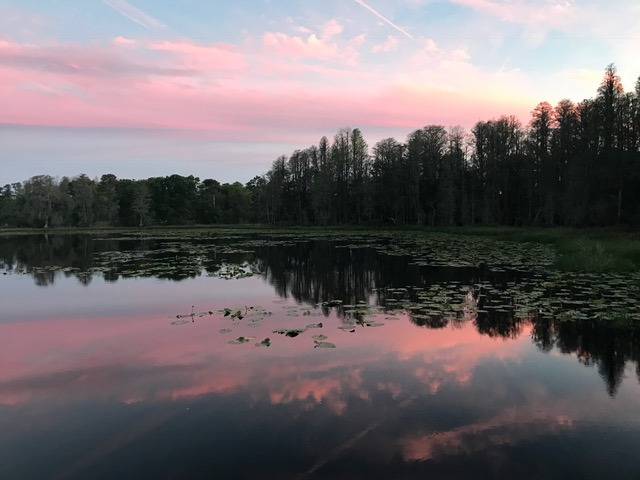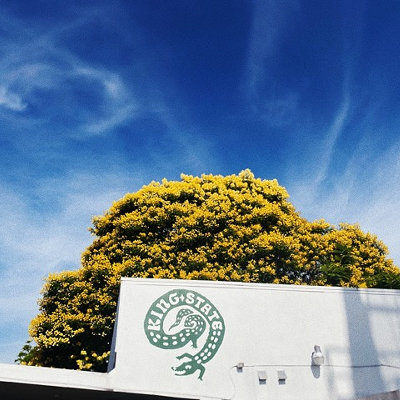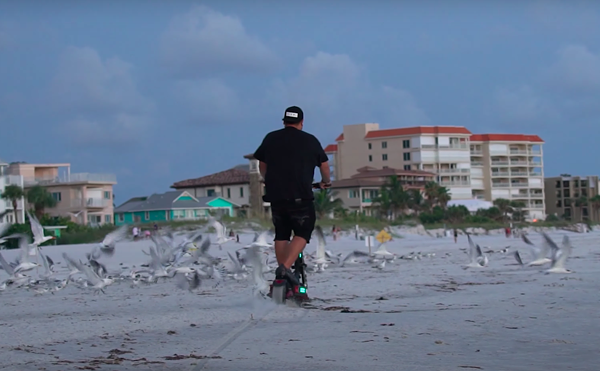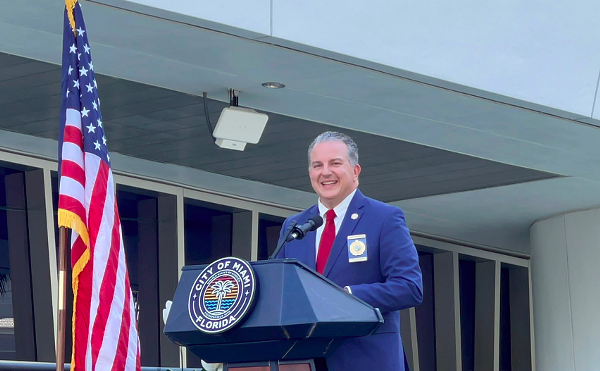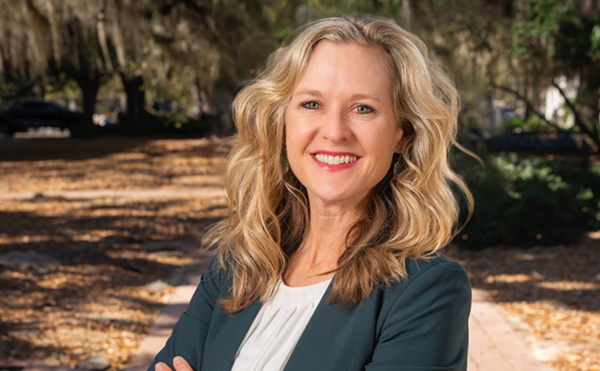Environmentalists from 30 organizations are fighting mightily to stop the paving of a part of paradise in Pasco County.
The proposed Ridge Road extension would cut through the Serenova preserve, which constitutes the northern section of the Jay B. Starkey Wilderness Park.
The 30-group bloc, called the Save the Serenova Coalition, consists of environmental, political, and horse rider advocacy groups. On Saturday, some members hiked a five-mile trail within the 6,500-acre site to highlight the peril facing its flora and fauna.
Despite their concerns over losing even more pristine Florida wilderness for the sake of more cars, officials in Pasco County want to keep the project moving.
After all, more busy road means more development, which means more tax revenue. Bonus: developers eager to make a buck would be eager to fill campaign coffers of friendly elected officials eyeing future election cycles.
You know, in theory.
And said elected officials' rationale for further diminishing Florida's natural environment is also getting rich.
Here's what Pasco County Commissioner Jack Mariano told Bay News 9 in a December interview.
"All of the gas and the emissions burning are affecting air quality anyway...If you really want to be environmental, to me, the more roads you can build, and alleviate traffic, it improves the quality of life of our citizens, improves air quality."
So...more places for cars means better air quality. Got it. Solid logic there, commissioner.
Earlier this month, attorney Jane West sent a letter to the U.S. Army Corps of Engineers on behalf of the Suncoast Sierra Club detailing the "significant adverse affects" to both the environment and quality of life that would result from the project moving forward.
"The loss of functional wetlands that will result with a full intersection will have impacts on wildlife habitat, floodwater storage, groundwater recharge and water quality enhancements for the downstream estuaries in the Gulf of Mexico. The impacts are significant and ecologically far-reaching," West wrote.
As for impacts to quality of life for humans, she said, the project would likely hurt the local water supply via "reduced water quality, compromised water storage capacity [and] negative impacts to groundwater recharge."
Plus, the road construction would diminish the experience of "passive recreation" for hikers, cyclists and horseback riders.
Her letter goes on to detail what the coalition considers many inconsistencies and errors that have occurred over the 19-year bureaucratic process that has unfolded since the county first applied for the road extension with the feds.
Suncoast Sierra Club conservation chair Tim Martin, in a written statement on behalf of the Save the Serenova coalition, called the project a "gift to developers" that "has already cost Pasco taxpayers millions of dollars and will cost many millions more as it threatens to destroy the best nature preserve left in Pasco county."
The county first purchased the Serenova Tract in the late 1990s as mitigation for construction of the Suncoast Parkway.
In other words, it's meant to offset the environmental damage that project caused.
Pasco officials have said they support the extension of Ridge Road through the preserve because the road could serve as an evacuation route from US 41 to the Suncoast Parkway. Activists cite evacuations that occurred during Hurricane Irma as evidence of "no impediment to residents’ ability to evacuate with existing road options."
The years-long struggle to save the Serenova preserve is one of many battles between environmental advocates and pro-development elected officials in Florida. It's also yet another example of officials choosing roads and cars — and, presumably, more gas stations and Dunkin' Donuts franchises and cookie-cutter residential complexes — over alternatives like public transit and pedestrian trails.

